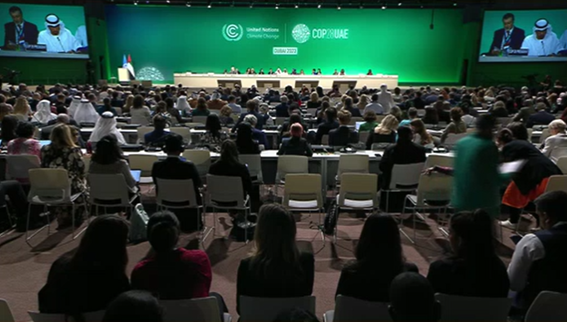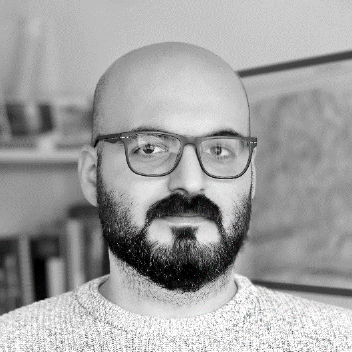COP28: 'Trying to try' is simply not good enough
Posted on 01-12-2023
Over 28 years ago, the Conference of the Parties (COP) convened in Berlin, Germany, marking the commencement of an annual gathering that brings together global leaders, delegates, observers, non-governmental organisations (NGOs), industry representatives and members of indigenous peoples and local communities. The main purpose of these meetings is to assess the progress made in combating climate change and to negotiate the implementation of further measures.
Before we get into the details of this year's COP, it is important to take a brief look back at the last COPs. COP 25 in Madrid emphasised the resilience of the global climate process and the Paris Agreement despite setbacks. However, it also became clear that governments have not made sufficient commitments to combat and mitigate the consequences of climate change. At COP 26 in Glasgow, the Global Coal Phase-out Agreement was discussed, and the Global Methane Pledge was signed, with over 100 countries committing to a 30% reduction in methane emissions by 2030. At COP 27 in Sharm El Sheikh, it was agreed to set up a fund for loss and damage and to define the details for implementing the Santiago Network. In addition, food security was recognised as a critical issue for the first time.
"It's simply not good enough for us to be 'Trying to try'. […]Turn the badge around your necks into a badge of honour, and a life belt for the millions of people you are working for." Simon Stiell, UNFCCC Executive Secretary. Opening ceremony of COP28, 2023.
A few months ago, I was informed that I could attend this year's COP as an observer representing the University of Sheffield, so I take the opportunity to share what I have observed so far. COP28, hosted by the United Arab Emirates, began yesterday – 30 November 2023 – with a minute of silence to mourn the passing of Pete Betts, a British climate negotiator known as one of the architects of the Paris Agreement. And Saleemul Huq, a Bangladeshi-British scientist who was instrumental in tackling climate change and helping in setting up the Loss and Damage Fund. As at previous COPs, the Presidency's action plan focused on implementing the pillars of the Paris Agreement, which aim to accelerate the energy transition, improve climate finance, put nature, people, lives and livelihoods at the centre of climate action and underpin everything with full inclusiveness. Simon Stiell emphasised that while we are taking steps, these are more "baby steps", and the six-year window of opportunity is closing fast - the window of opportunity in which we will exhaust our planet's capacity to deal with our emissions. The window of opportunity in which we will break the 1.5-degree barrier. Jim Skea, Chair of the IPCC, on the other hand, explained that it is crucial to use science effectively to meet the challenges and to design climate action based on science, but without forgetting that science alone is no substitute for action.
The highlight of the first day was the operationalisation of the long-awaited Loss & Damage Fund, which aims to compensate vulnerable nations for the impacts of climate change. Numerous countries pledged financial resources to the fund, including the United Arab Emirates with USD 100 million, the United Kingdom with up to GBP 60 million, Japan with USD 10 million, the United States with USD 17.5 million for the new fund and a further USD 7 million for other loss and damage financial mechanisms. Finally, the European Union pledged 225 million euros, including the German contribution of 100 million US dollars.
Despite the initial positive momentum, the challenges of previous COPs remain. These include the lack of clear and ambitious targets, disparities in responsibility, and an absence of robust enforcement mechanisms. Overcoming these challenges will be crucial to ensure the future effectiveness of global climate efforts. Let us hope that this COP will be different and bring about real change, as we cannot afford to waste any more time.


